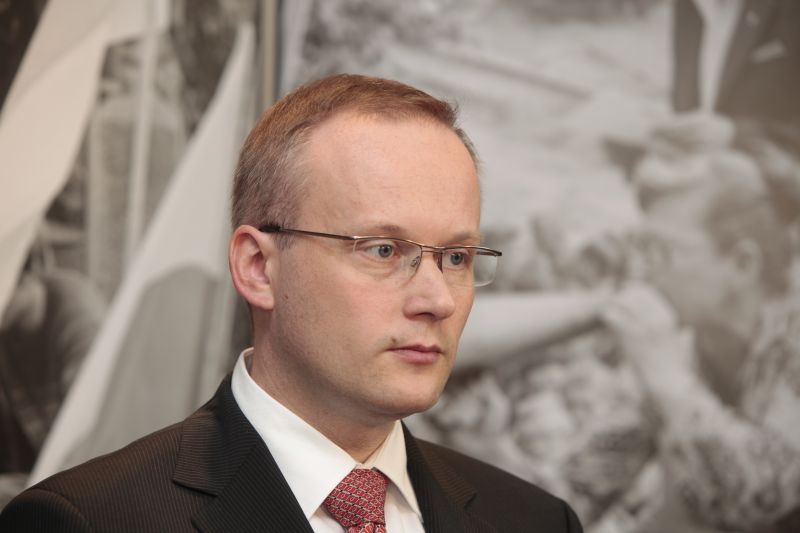
Lukasz Kaminski; photo - P Zycienski
The previous incumbent, Janusz Kurtyka, was one of the casualties of the Smolensk air disaster that rocked Poland in April 2010.
During today's vote in the Senate, 79 members voted for Kaminski, three against and one abstained.
Last week, the lower chamber of parliament (Sejm), voted overwhelmingly in favour, with 356 for, eight against and eight abstentions.
The new chief is a doctor of history who previously served as head of the institute's educational office. The 38-year-old was put forward by IPN's council from amongst three other candidates.
Although the institute has attempted a charm offensive in recent months by acting as patron of exhibitions chronicling anti-communist counter-culture, and releasing board games with a historical twist, the enterprise has suffered a great deal of criticism, amid accusations of bias towards the conservative Law and Justice (PiS) party.
PiS, in government between 2005-2007, is a vehement supporter of the so-called “lustration” vetting process, which obliges politicians and civil servants to declare whether or not they collaborated with the Communist-era security services. The party attempted to extend the policy to wider spheres, including universities and journalists, but the project collapsed after it was ruled unconstitutional.
IPN holds special powers of investigating so-called 'lustration' statements, with access to thousands of formerly classified files and can act in a quasi-legal manner, bringing to court cases of alleged crimes against the Polish nation.
Defenders of IPN argue that splenetic outbursts against the institute from prominent figures are often due to the fact that there are indeed skeletons in the closet, and that many are afraid that awkward truths will be revealed.
However, others argue that the communist files cannot be trusted. Solidarity legend Lech Walesa is amongst those accused of being a sometime collaborator, likewise countless clergymen, artists and other public figures.
Besides lustration, a significant portion of the institute's activities involves the investigation of crimes from the Second World War.
Over the last year, the institute has been run by Franciszek Gryciuk as a stop-gap measure. Gryciuk had served as second-in-command until Janusz Kurtyka perished in the Smolensk crash.
Lukasz Kaminski can formally begin his leadership once he has been sworn in during a ceremony in parliament. This will likely occur later this month. (nh/pg)